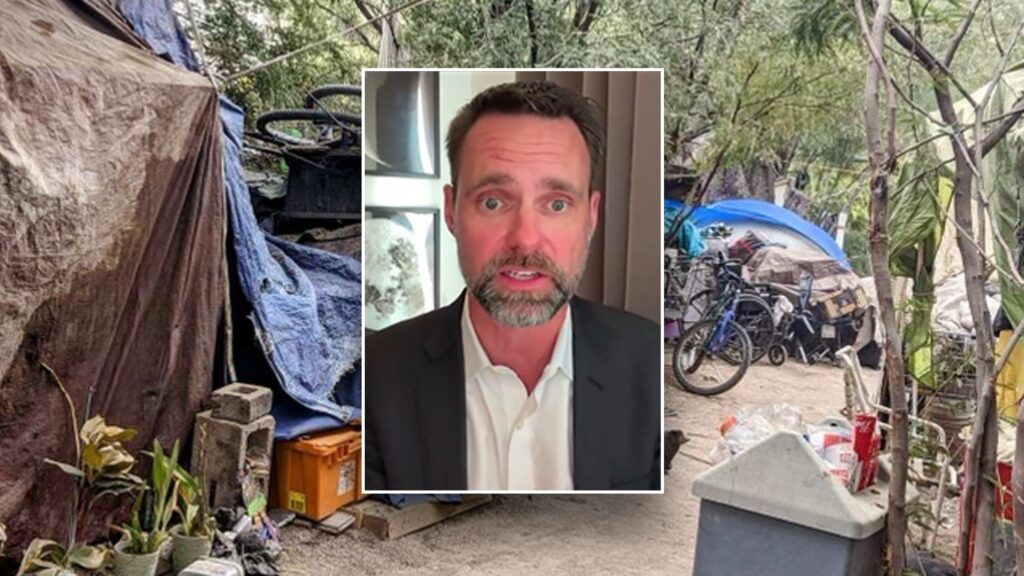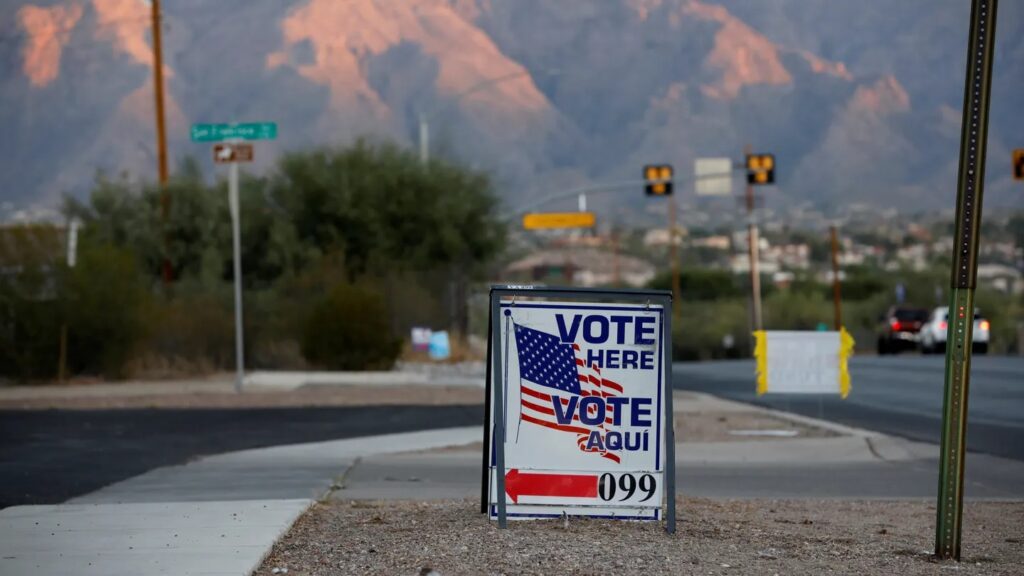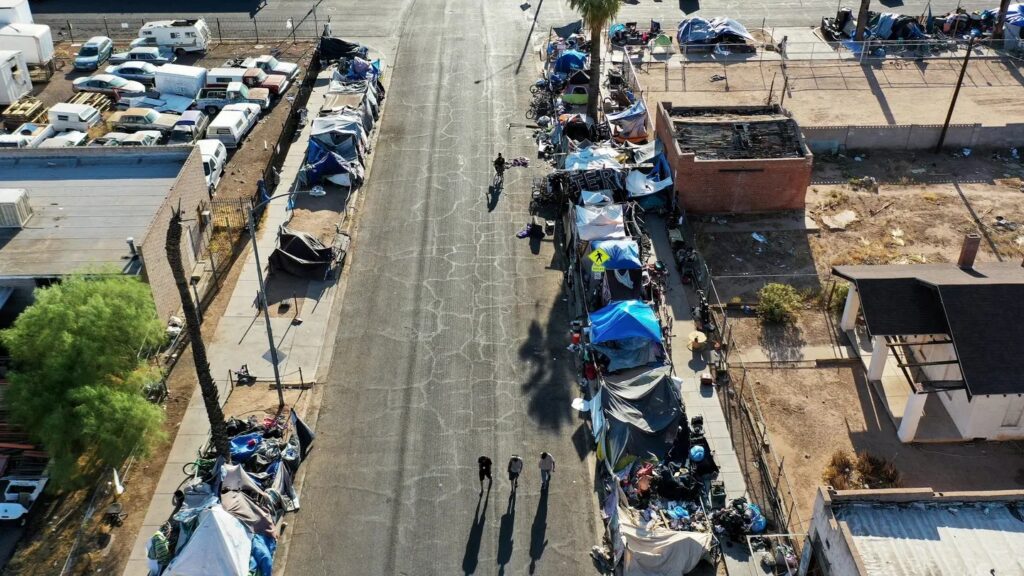Tucson restaurant owner says business owners being punished for skyrocketing homeless crisis
‘We’ve had more crime in my restaurant establishments over the last four years than we had in the previous 15 combined,’ Grant Krueger said
By Kristine Parks
On May 3, 2024
A Tucson, Arizona, restaurant owner said the region’s spiraling homeless crisis has scared away his customers and turned a once family-friendly area into a hotbed for crime thanks to local governments failing to enforce the law.
“Quite frankly, it terrifies me for my own children to see this level of open drug use and distribution happen in broad daylight on our city streets, and what you might consider to be the nice areas of town too,” Grant Krueger, owner of Union Hospitality Group, told Fox News Digital.
Krueger has operated several restaurants in Tucson and Pima County for over 15 years. He said homelessness in Arizona has become progressively worse in recent years and that he’s had to spend tens of thousands of dollars on security to protect his businesses.
“We’ve had more crime in my restaurant establishments over the last four years than we had in the previous 15 combined,” he said. “It’s gotten to the point that we often don’t even report it to the authorities anymore, because we feel, quite frankly, that there’s very little that they’re going to do.”

Homelessness in Pima County has skyrocketed over five-year period, according to a government report published in May 2023. From 2018 to 2023, the number of persons experiencing unsheltered homelessness more than quadrupled, while overall homelessness increased by 60%.
Krueger blames local governments and open border policies, which he said have allowed fentanyl to pour into Tucson, located an hour’s drive from the southern border, for the rise in criminal activity at his restaurants.
“Our municipalities are currently not enforcing many laws on the books when it comes to public camping, when it comes to panhandling, either from city intersections or from medians, when it comes to public urination, defecation or open consumption of alcohol and drugs. And the lack of enforcement of all these laws have made things tremendously worse here for us in the desert,” Krueger said. “On top of that, the open border policies that we’ve had over the last number of years have brought in a tremendous supply of fentanyl into our community.”

He described how a popular 100-mile riverwalk known as “The Loop” near his businesses had changed from a family-friendly attraction into an open-air drug market because of homeless encampments.
“Now it’s a place where I would be afraid to take my friends and family,” Krueger said.
He added that the proximity of these encampments has also hurt his businesses since intoxicated homeless people there have come over and assaulted his customers.
Krueger said that a community-based, anti-crime coalition has worked with county leaders to come up with solutions to address the crisis. While they’ve put up anti-panhandling signs at intersections where it is common, he says more needs to be done to protect the community and businesses.

“There’s literally zero enforcement,” Krueger said. Business owners, he added, bear the brunt of these policies.
“We’re paying what we call a crime tax, the cost of the city and county’s lack of enforcing the current laws that are on the books right now are essentially costing business owners like myself an awful lot of money, and it makes for situations that are substantially less comfortable for our patrons as well. Nobody wants to be accosted by homeless folks in your parking lot, have your car broken into or find people living in the bushes or behind various facilities in the various commercial establishments that we have here in Tucson. And so it’s really been a cost that’s been borne by the private sector because of the public sector’s inability or unwillingness to enforce laws already on the books.”

Krueger is hopeful the situation could improve if voters approve a pro-property owner measure on the state ballot this November.
The proposal would provide compensation for businesses, residents and property owners who’ve had to pay for property damage homeless people caused because of local governments’ lax enforcement of laws.
According to The Goldwater Institute, the think tank that helped draft the measure, HCR 2023/SCR 1006 would protect property owners while holding local leaders accountable.
“HCR 2023/SCR 1006 allows property owners, who have been forced to shoulder mitigation expenses as a result of a municipality’s purposeful failure to enforce nuisance regulations related to the homeless crisis, to receive a refund for damages up to the amount of their property tax liability. The funds are then deducted from the offending municipality’s state shared revenue and sent to the property owner,” the group said.
In a statement to Fox News Digital, a spokesperson for the thinktank explained the reasoning behind the measure.
“For years, local governments across Arizona have refused to address their rampant homelessness crises by enforcing the law. The resulting lawlessness has forced countless business and homeowners to watch their lives and livelihoods be destroyed as violent crime, public drug use, and vandalism run rampant,” the spokesperson said. “Arizonans no longer trust that their tax dollars are being used by local governments to protect their rights and provide the public health and safety services they are owed. This reform helps ensure Arizona property owners receive just compensation from a government that has failed to fulfill its duty.”
A spokesperson for Pima County referred Fox News Digital to the county’s Director of Office of Homelessness and Housing Opportunities, who did not return a request for comment. The city of Tucson, The Tuscon PD and the Sheriff’s Office did not return requests for comment by publication.
This piece was republished from Fox Business.